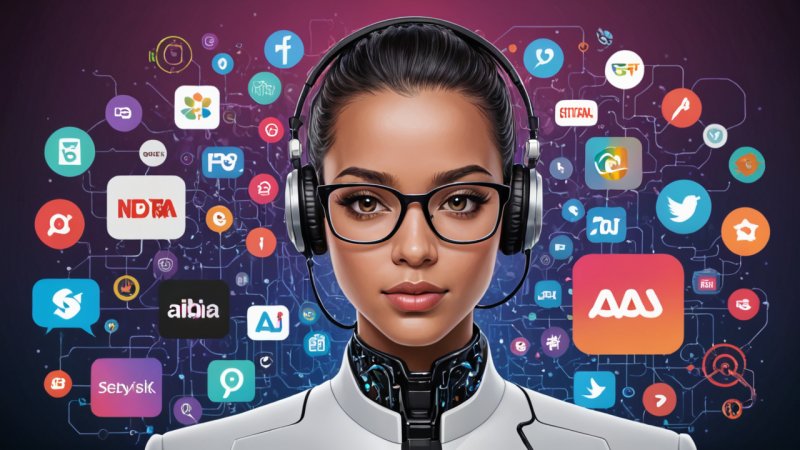Artificial Intelligence (AI) has emerged as a transformative technology, revolutionizing various industries, and entertainment is no exception. From movies and music to video games and streaming platforms, AI is changing how content is created, consumed, and experienced. In this article, we will explore the ways AI is shaping the future of entertainment and what it means for consumers and creators alike.
One of the most significant contributions of AI to the entertainment industry is its ability to analyze vast amounts of data. Streaming services like Netflix and Spotify leverage AI algorithms to understand user preferences, behaviors, and viewing habits. By analyzing this data, these platforms can create personalized recommendations, ensuring that users discover new content tailored to their tastes. This not only enhances user experience but also increases engagement and retention rates.
Moreover, AI is playing a pivotal role in content creation. With advancements in natural language processing and machine learning, AI tools can assist writers in generating scripts, suggesting plot ideas, or even creating entire storylines. For instance, AI programs can analyze popular films and predict what plot elements resonate most with audiences, providing valuable insights for screenwriters. This collaboration between human creativity and AI analytics can lead to more engaging and commercially successful content.
In the realm of visual effects and animation, AI is streamlining the production process. Techniques such as deep learning and neural networks allow for quicker rendering of high-quality visuals, reducing the time and cost associated with traditional animation methods. Studios can now create stunning visual effects that were once thought to be impossible, making blockbuster films more visually captivating than ever before.
AI is also enhancing interactive entertainment experiences, particularly in video games. Game developers are utilizing AI to create more intelligent non-player characters (NPCs) that can adapt to player behavior, making gameplay more dynamic and immersive. Additionally, AI can analyze player data to adjust difficulty levels, ensuring a tailored gaming experience that caters to both novices and experts.
Another exciting development in entertainment technology is the rise of AI-generated music. Several platforms have emerged that allow users to input preferences and generate unique music tracks based on those inputs. This not only democratizes music creation but also provides artists with new tools to explore their creativity. AI can assist musicians in composing, producing, and even mastering tracks, significantly reducing the time and effort involved in the music-making process.
While the potential benefits of AI in entertainment are vast, there are also ethical considerations to keep in mind. Issues such as copyright, authenticity, and the potential loss of jobs in creative fields must be addressed as AI continues to evolve. It is crucial for industry stakeholders to find a balance between leveraging AI advancements and preserving the human touch that makes entertainment relatable and meaningful.
In conclusion, AI is undoubtedly transforming the future of entertainment in profound ways. From personalized content recommendations to innovative content creation and immersive gaming experiences, AI is enhancing how we engage with entertainment. As this technology continues to evolve, it will be exciting to see how it further shapes the industry and influences the stories we tell and the experiences we share.
How AI is Reshaping the Entertainment Landscape
Explore how AI is revolutionizing the entertainment industry, from personalized content recommendations to innovative content creation and immersive gaming experiences.






